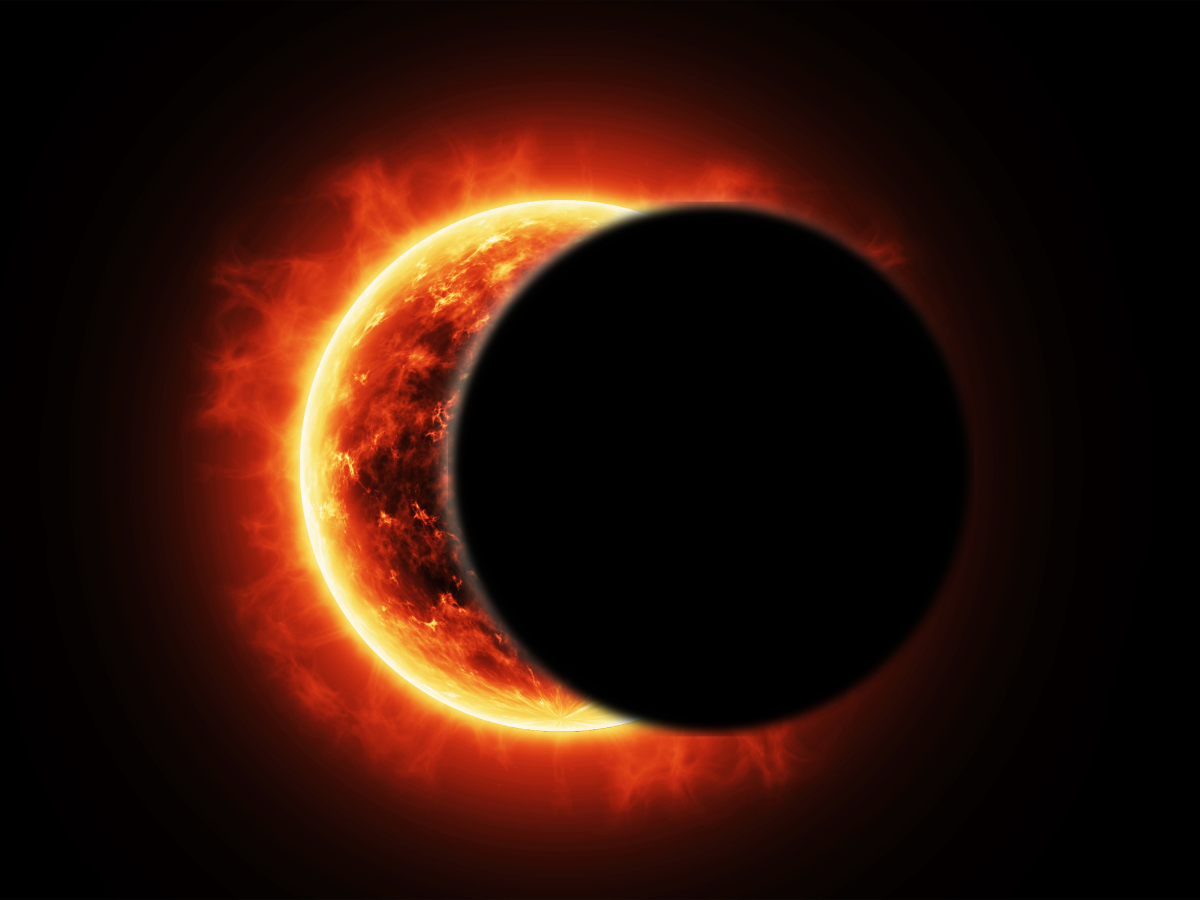
On April 20, sky watchers will be treated to this year's first magnificent solar eclipse (as per Indian timing). When the Moon moves in front of Earth and the Sun, partially obstructing Earth's view of the Sun, a partial solar eclipse will occur. Southern South America, some of Antarctica, and the Pacific and Atlantic Oceans will all be able to see this solar eclipse. Indian residents won't be able to see the spectacle because it will happen at midnight. On April 20, 2023, the partial eclipse will start at 12:15 am and terminate at 4:07 am (Indian Standard Time). At 2:11 am, it will be at its height.
Surya Grahan: Health effects of the solar eclipse
Although the solar eclipse is a natural occurrence, it is thought to have a significant impact on human health, typically not in a positive way. According to Hindu mythology, specific safety measures must be followed during this time to avoid the Grahan's deadly effects (Eclipse). For the protection of both the mother and the unborn child, pregnant women are specifically recommended to stay at home and refrain from viewing the Grahan. However, not all of the solar grahan ideas found in Indian mythology are supported by science. Hence, whether you want to follow them or not is absolutely up to you. These are a few ways the solar eclipse is thought to have an impact on health:
See more: Solar Eclipse 2023 Live: Surya Grahan begins, timings, Live stream in India
Solar Eclipse 2023: Eye Condition
Seeing Surya Grahan with your unprotected eyes could harm your retina and, in the worst case scenario, cause blindness. Only because of this health hazard is it strictly advised against witnessing the eclipse without taking any safety precautions. During the eclipse, the Sun's rays are concentrated, making it dangerous to watch with bare eyes since they could harm the sensitive eye cells. Use specialised eyewear to watch the solar eclipse. Nothing works, not even sunglasses or photographic negatives.
Solar Eclipse 2023: You might feel drained
You might feel a little lethargic or exhausted after the eclipse, according to some spiritual study. Even if you were feeling upbeat all day, you can feel weary and lack the energy to complete your daily tasks once the grahan starts. It is suggested that important decisions not be made during the grahan.
Solar Eclipse 2023: It could result in a stomach problem
It's a fallacy that the eclipse could mess with your digestive system. You can experience dizziness, nausea, indigestion, and constipation. People are urged not to eat or drink anything during the eclipse for the same reason.
Mood swing
Another notion holds that one could experience abrupt mood swings during an eclipse. You can also experience mood changes, irritability, unpleasant thoughts, loss of focus, and unease while the eclipse is happening. It is important to maintain your composure and stay out of any conflicts.
Solar Eclipse 2023: Pregnancy
For pregnant women, eclipses are extremely harmful. According to some theories, pregnant women shouldn't leave the house during the eclipse since it could be dangerous for both them and their unborn children. They might even experience difficulties giving birth, or their kids might be delivered with deformities.
Solar Eclipse 2023: Will Indians be able to see it?
Since the eclipse will occur at midnight in India, residents of that country won't be able to watch it. It will start at 12:15 and last till 4:07 in the morning.
What is a partial solar eclipse?
When the sun and moon are not exactly lined up in a straight line, a partial solar eclipse happens. When the moon casts a shadow on the Sun, the Sun looks to have a crescent-shaped bite taken out of it.
Does the solar eclipse cause health problems?
Solar eclipse viewing with bare eyes can harm the retina and even result in blindness. Other than that, the solar eclipse has not been shown to have any negative effects on health.
Solar Eclipse 2023: How does it impact the eyes?
Using your naked eyes to watch Surya Grahan could harm your retina and, in the worst case scenario, cause blindness. The only scientifically supported health concern that forbids casually viewing the eclipse is this one. As the eclipse occurs, the Sun's rays are concentrated, and viewing it with bare eyes could harm the sensitive eye cells.







